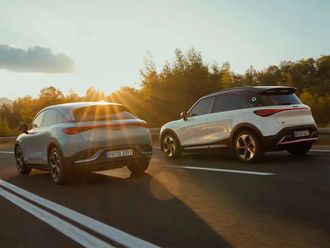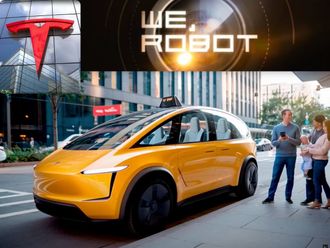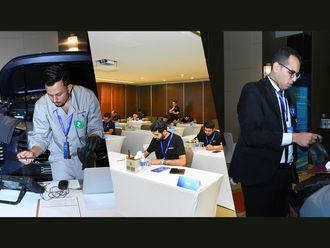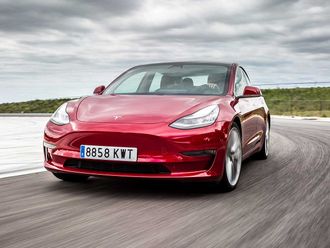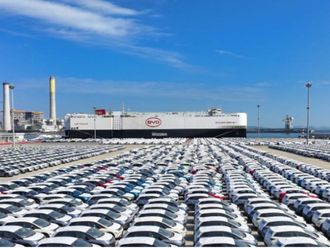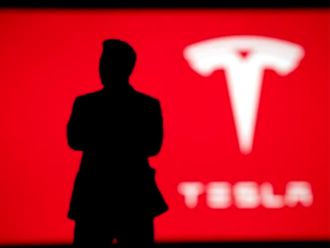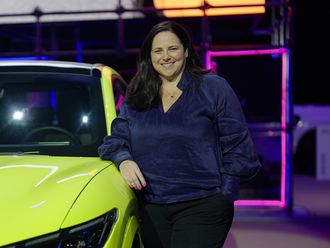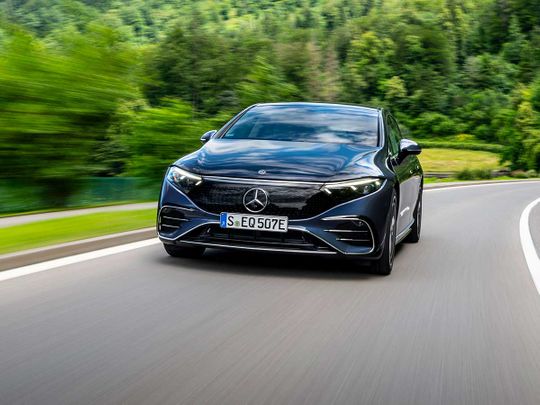
Daimler AG will team up with Stellantis NV and TotalEnergies SE in a European battery venture set to cost more than 7 billion euros ($8.2 billion) in total to secure supplies for electric Mercedes-Benz cars in its home region.
The world's biggest luxury-car maker will take a 33% stake in battery manufacturer Automotive Cells Company that will be financed through equity, debt and subsidies to build capacity of at least 120 gigawatt hours in Europe by the end of the decade. ACC also previously held talks with Stellantis's French rival Renault SA about a partnership.
Mercedes will invest roughly 500 million euros next year and expects its total spending to remain below 1 billion euros.
"This investment marks a strategic milestone on our path to CO2 neutrality,” Daimler Chief Executive Officer Ola Kallenius said in a statement Friday. "This new partnership allows us to secure supply, to take advantage of economies of scale, and to provide our customers with superior battery technology."
The deal marks the latest step by the maker of the EQS sedan to accelerate toward fully electric vehicles, expecting that affluent buyers will be at the forefront of the shift. Daimler's move comes amid a flurry of activity and deals across the industry to ensure sufficient supply of batteries as demand takes off. In Europe, EVs accounted for 17% of sales during the first half.
ACC is an initiative forged last year by Total's Saft unit and Stellantis, which includes the Peugeot, Citroen and Opel brands, as well as Fiat and Chrysler. ACC currently operates a development center in Bordeaux and a pilot site in Nersac, also in France, that will start production at the end of this year. Renault and Nissan Motor Co. both sold their equity stakes in Daimler earlier this year to help finance their turnaround efforts.
Daimler will hold two of six supervisory board seats for the battery maker, which will supply Mercedes from mid-decade and is weighing an expansion of its production network in Europe. The companies will work together on battery technology development, including high silicon anode and solid-state batteries.
Mercedes in July unveiled plans to spend more than 40 billion euros this decade to electrify its lineup and defend its leadership in the luxury segment. The goal includes building battery cars on three all-electric vehicle platforms from 2025 and setting up eight battery factories worldwide with partners.
After years being viewed as a laggard in the EV race, the inventor of the automobile stepped up its game this year with the launch of the EQS, the electric version of its flagship S-Class. The sedan blends upscale appeal and competitive battery range to challenge electric leader Tesla. It'll be flanked by the EQE, the battery-powered counterpart to the E-Class sedan, which was unveiled earlier this month in Munich.





